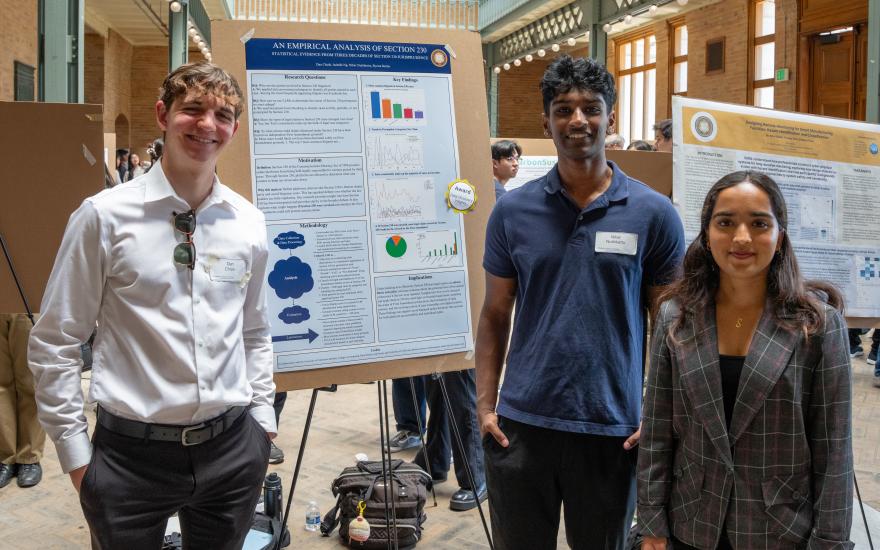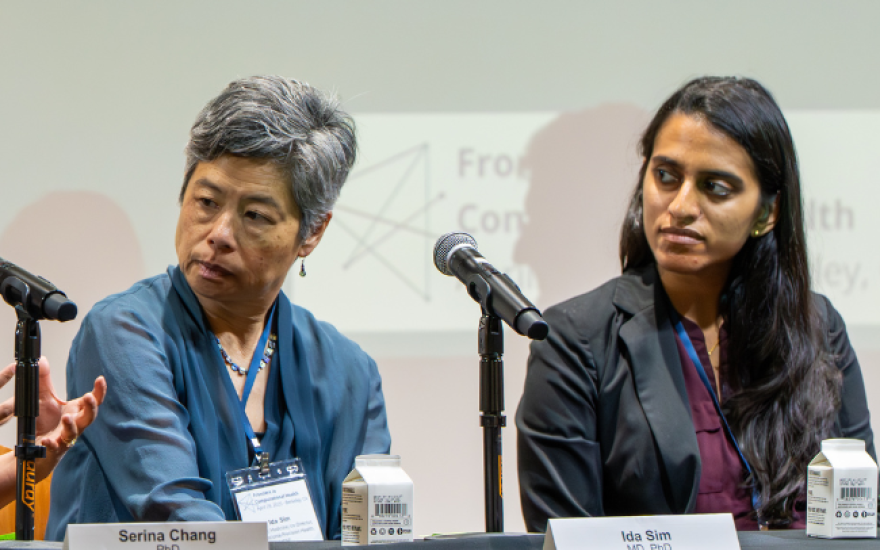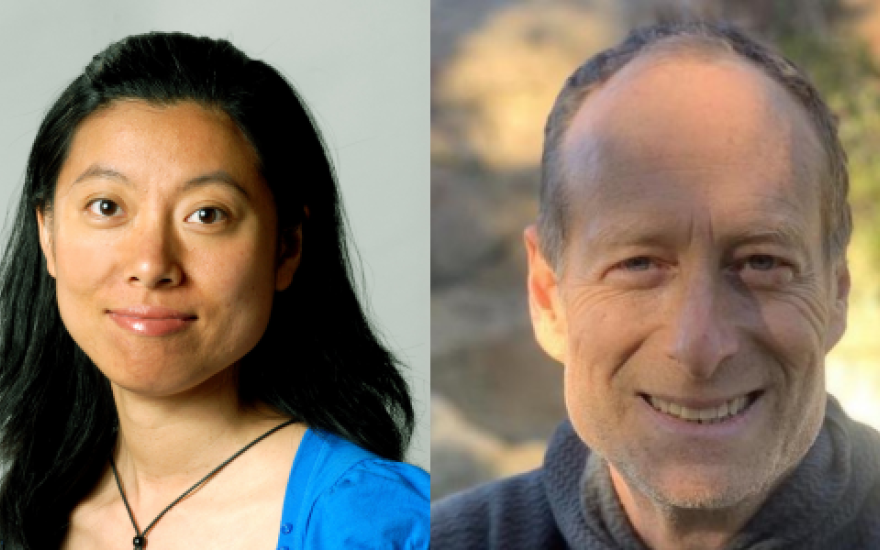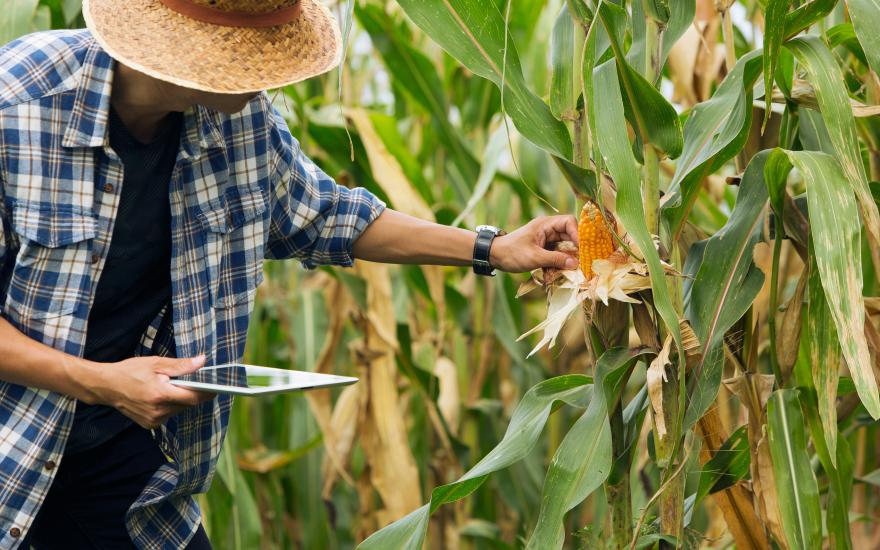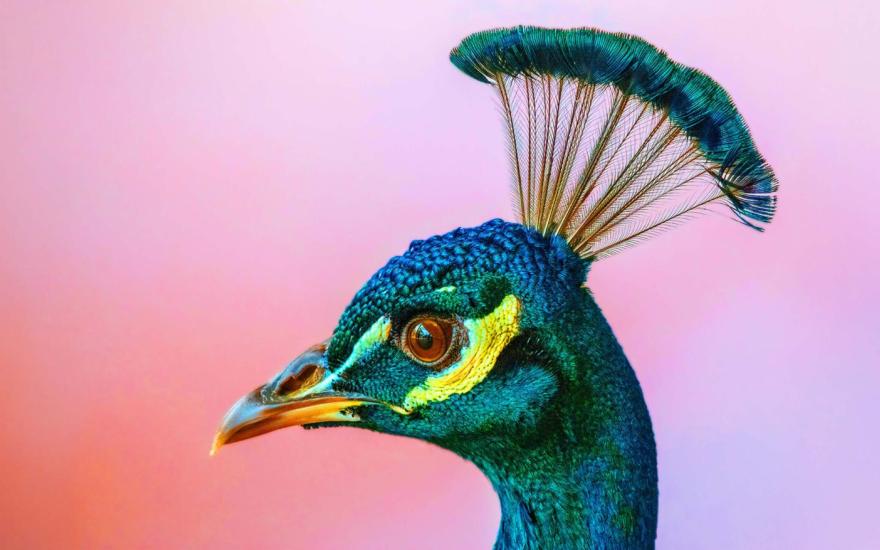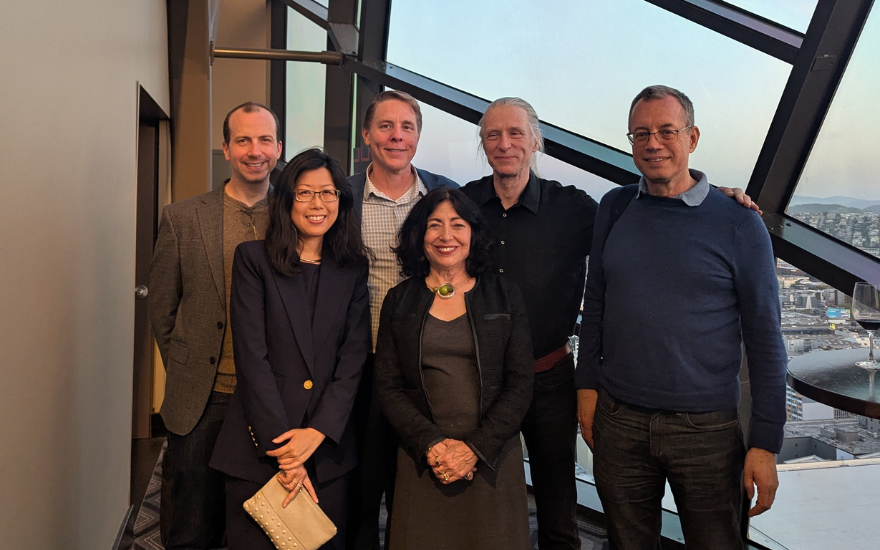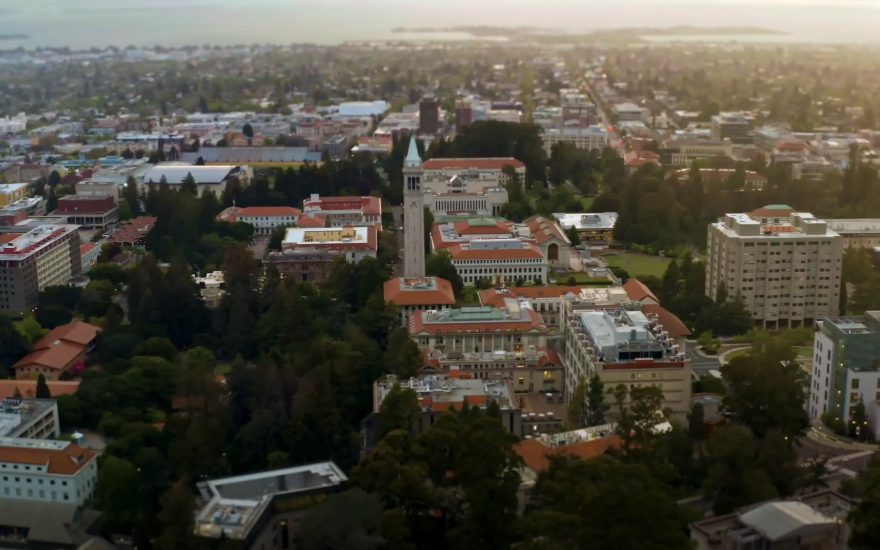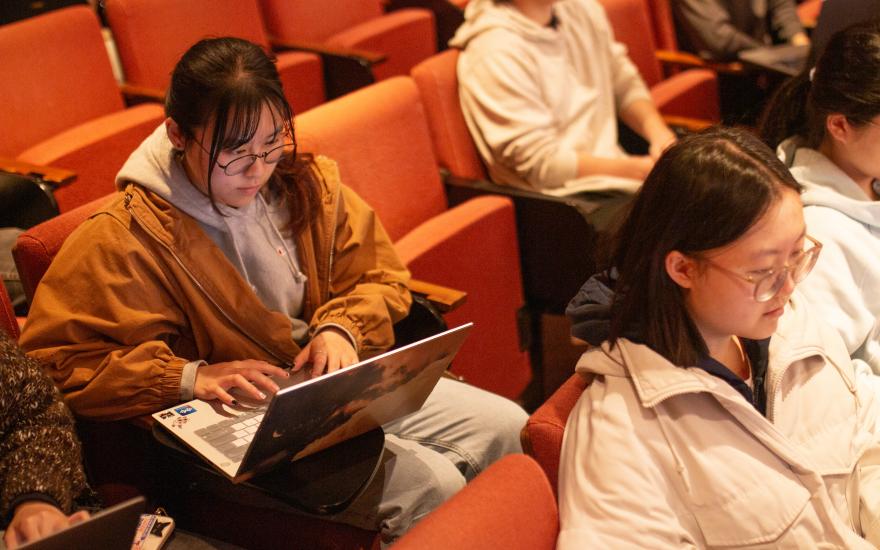Dozens of California public educators walked into a sunlight streaked, first floor-room at the edge of UC Berkeley in late June. Hugging each other and snagging coffee or water, they navigated blue and gold star-shaped balloons to settle at tables facing a projector screen.
These scholars are part of a state effort to make California the nation’s leader in excellent, equitable and accessible undergraduate data science education. For the next two days, the assembled attendees would share how they’re building programming, community or pathways to do just that.
“We have begun to develop deeper relationships among us, which will enable us collectively to nurture generations of California data scientists with human perspective and purpose,” said Jennifer Chayes, dean of UC Berkeley’s College of Computing, Data Science, and Society and a co-principal investigator on one of the California state grants, as the day began.
“Our superpower really is our collaboration,” said Chayes. “I believe in scale, and I believe in reaching into every community in California. That's what our community colleges do. That's what our [California State Universities] do. That's what the [University of California] system does.”
Data science is changing how we are living our lives – from how we consume information to the kinds of transportation we use. It has garnered even more attention due to the recent boom in AI, which builds upon and intersects with this field. Diversifying and expanding who creates these technologies can help make the tools more ethical, equitable and effective for society.
The state gave educators from 34 higher education institutions $8 million in 13 grants through its California Education Learning Lab data science challenge. Their collective efforts aim to reach 783 faculty members and 55,000 students, said Lark Park, director of the learning lab, a state-funded grantmaking organization.
“We're embracing a brave new world here,” said Park, who is also a regent on the University of California’s Board of Regents, at Berkeley’s National Workshop on Data Science Education. “AI is going to be built on everything that you do and everything that you teach.”
“The fact that you are a cohort, the fact that you are working together, and the fact that you are working deeply in some of these foundational disciplines is really going to matter for how we can take the opportunities that AI brings and manage the challenges that it also brings,” Park said.
Collaboratively defining and democratizing data science
Berkeley’s Data Science Undergraduate Studies program organized the five-day national workshop with support from the West Big Data Hub and the California Education Learning Lab. The first two days of the workshop convened recipients of the learning lab grants in data science education.
Berkeley’s data science program has developed engaging, excellent programming and worked to diversify and expand access to this field for years. It’s taught thousands of students, helped begin to build a data science pipeline from community colleges to four-year institutions and supported educators worldwide through an annual workshop and other efforts.
The four learning lab grants received by Berkeley’s College of Computing, Data Science, and Society, which houses the data science program, will help the institution build on its record. One grant designated the college as the cohort coordinator for all data science grantees. That means Berkeley is fostering connection and collaboration for these educators in California’s public higher education system, helping maximize their impact for their schools and the state.
“We’re bringing people together to decide what data science is, what data science education is and what are the absolute essential skills each student must take out of their program wherever they pursue their degree,” said Kseniya Usovich, project manager for the Data Science Undergraduate Studies’ online and outreach programs. “It's so inspirational that so many people are working on democratizing data science education for all of the students in California.”
Increasing data literacy and re-skilling faculty
To create excellent and accessible undergraduate data science education, the learning lab-funded grants centered on three areas. For one, the grantees are creating programs that connect community colleges to four-year public colleges and universities for this field.
Take California State University, East Bay. It's working with partners at three community colleges to increase the enrollment and diversity of data science students. They’re conducting outreach, creating new courses that are more engaging and application-oriented and developing new curricula that give students hands-on learning experiences. Most CSU East Bay students transfer from community colleges, so partnering is essential to success, said Ayona Chatterjee, chair of the university’s Department of Statistics and Biostatistics.
“It's just become such a basic skill in today's world to be data literate. Whether you are in public health or you're a biologist, you need to know the power of data and understand what you can do with it, but also some of the challenges or ethical questions that data present,” said Chatterjee. “It's a basic science class now, so the more students we have in this field, I feel it's better just in general for society.”
Grantees are also developing programs that enable and support faculty to teach data science. Judith Canner, a professor of statistics at CSU Monterey Bay, is working with UC Santa Cruz and other institutions to build community and curriculum that can help re-skill math and computer science faculty at smaller universities.
“There's just not that many [data scientists] who are going to go into education, especially at an undergraduate level, because you don't get paid even half as much as what you would get paid in industry,” said Canner, who is also the statistics and data science program coordinator at CSU Monterey Bay. “The best route for bringing better data science education to the masses is through the training and professional development of existing professors.”
The ‘wild, wild west’ of data science
Finally, grantees are exploring interdisciplinary ways to teach data science as part of other kinds of courses on topics from medicine to history.
For example, a team at California State Polytechnic University, Humboldt, is launching this fall a climate justice - data science module as part of a first-year science course, which will show students how these tools can help solve real-world challenges. They are also creating communities and opportunities for faculty in STEM and other fields to learn and use these tools.
Kamila Larripa, an associate professor of mathematics at the Cal Poly Humboldt, hopes these efforts will get new students excited about and engaged with data science, equipping them with 21st century skills. She also hopes it will help faculty become more connected in a post-pandemic world. She expressed gratitude for Berkeley’s “critical role” in helping her think through the development of her team’s project and for its broader contributions in this space.
“Data science education is like the wild wild west. There's not a ton of standardization,” said Larripa, who is also the program lead for Cal Poly Humboldt’s new data science major. “But I think that the work that they're doing at UC Berkeley, it really is helping. We have a lot of transfer students, so it's important that if they're taking a class somewhere, it's going to transfer here, and I think that the work they're doing has been really great for that.”
She added, “We're just so appreciative of their support and encouragement."

